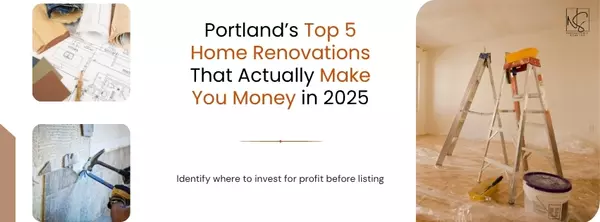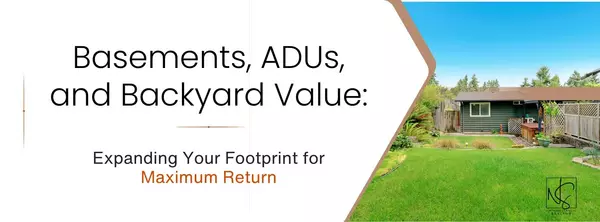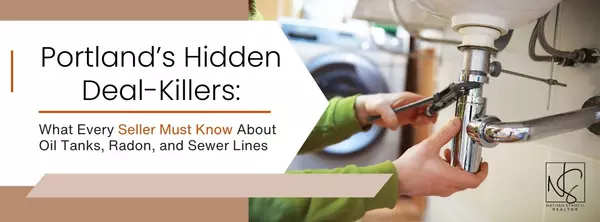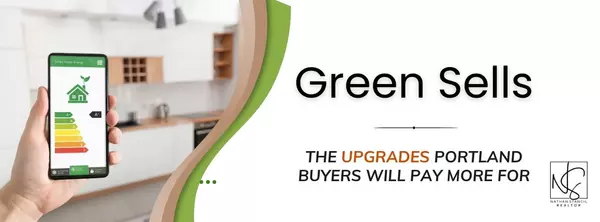Portland’s Hidden Deal-Killers: What Every Seller Must Know About Oil Tanks, Radon, and Sewer Lines
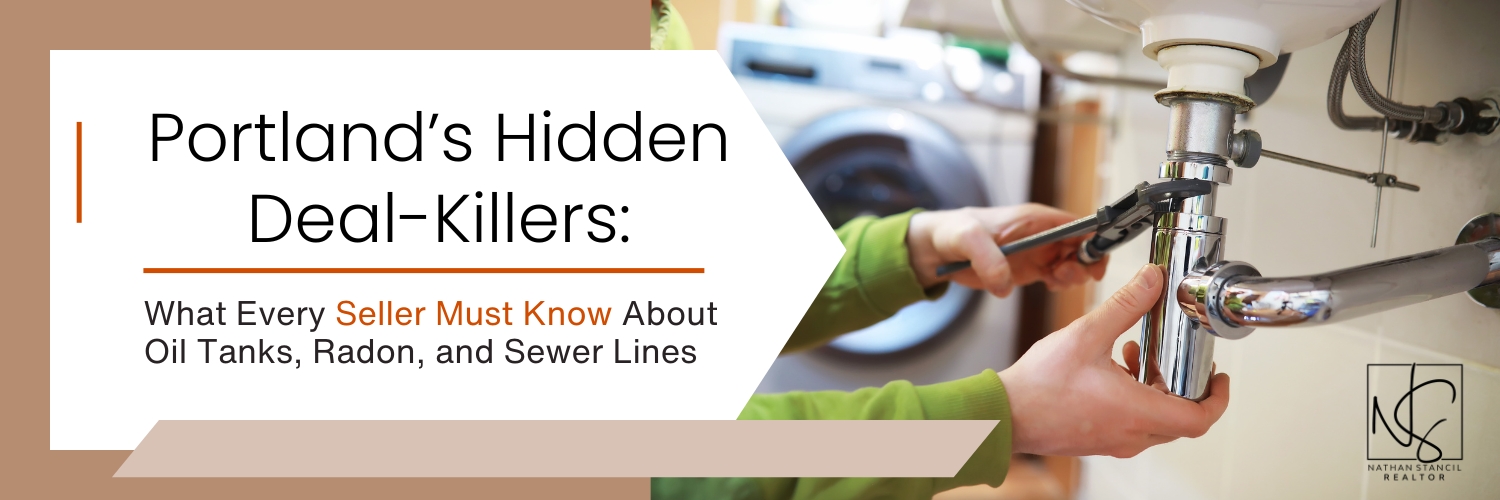
When preparing to sell a home in Portland, most sellers focus on staging, touch-ups, and curb appeal. But beneath the surface lie invisible issues that can derail a deal faster than any scratched hardwood or outdated backsplash: underground oil tanks, elevated radon levels, and aging sewer lines.
In Portland’s 2025 market—where buyers are more cautious, inspections are meticulous, and sustainability is a top priority-these environmental and structural issues can turn an eager buyer into a disappearing act.
Here’s what every Portland seller needs to know before listing.
1. The Oil Tank Time Bomb
Many older Portland homes were once heated by oil. While most have transitioned to modern systems, countless underground heating oil tanks (HOTs) remain buried and forgotten—or worse, leaking.
Why it matters:
State law requires disclosure of any known tank, and cleanup of any leaks-past or present-falls squarely on the current owner. Even if the contamination occurred decades ago.
What to do:
-
Hire a professional to perform a tank search and, if found, test the surrounding soil.
-
Decommissioning a clean tank costs $1,000–$3,000. If contaminated, remediation can exceed $10,000.
-
A DEQ-certified clean report is a powerful selling tool-and a deal-saver.
2. The Invisible Danger: Radon
Radon is a naturally occurring radioactive gas that seeps up from the soil. Portland sits in a known radon zone, and levels can vary block by block-even house by house.
Why it matters:
Radon is the second leading cause of lung cancer in the U.S. A test result over 4.0 pCi/L is flagged by the EPA and nearly always triggers a mitigation request from buyers.
What to do:
-
Conduct a radon test before listing ($150–$800).
-
If needed, install a mitigation system (typically $1,200).
-
Homes with a radon system already in place are seen as more desirable, not less.
3. Sewer Lines: The Expensive Surprise
Portland’s sewer infrastructure includes decades-old pipes-and an odd relic: party sewers, where multiple homes share a single line. If discovered, the City requires each home to install its own line-at the seller’s expense.
Why it matters:
Sewer repairs and replacements can cost $4,000 to $15,000+. Discovery during escrow can lead to delays, price cuts, or outright cancellations.
What to do:
-
Order a pre-listing sewer scope inspection ($100–$200).
-
Address any issues or at minimum, disclose and provide repair bids proactively.
The Bottom Line: Transparency Wins
Proactively addressing Portland’s unique environmental hazards isn’t just about disclosure-it’s about control. Waiting until the buyer’s inspection means scrambling to negotiate under pressure. Tackling these issues upfront allows you to:
-
Avoid major renegotiations
-
Build buyer confidence
-
Command stronger offers
“Buyers aren’t afraid of a home that’s had work done. They’re afraid of a home that’s hiding something.”
Selling smart means knowing what’s beneath the surface-and fixing it before it surfaces at the worst time.
Categories
- All Blogs (23)
- Buyer & Seller Tips (2)
- Buyer Tips (4)
- Environmental Hazards (1)
- Floating Homes (4)
- Green Homes (1)
- Home Buying (2)
- Home Improvement & Remodeling (1)
- Home Improvement ROI (1)
- Home Preparation (1)
- Home Selling (7)
- Home Selling Tips (1)
- House Improvement (1)
- Inspection (1)
- Market Strategies (1)
- Market Trends (1)
- Market Updates (2)
- Portland (10)
- Portland Market Insights (1)
- Portland Real Estate (2)
- Portland Real Estate Market (1)
- Real Estate Investment Tips (1)
- Real Estate Tips (12)
- Seller Advice (1)
- Seller Preparation (1)
- Sustainability in Housing (1)
- Vancouver Real Estate (1)
Recent Posts



